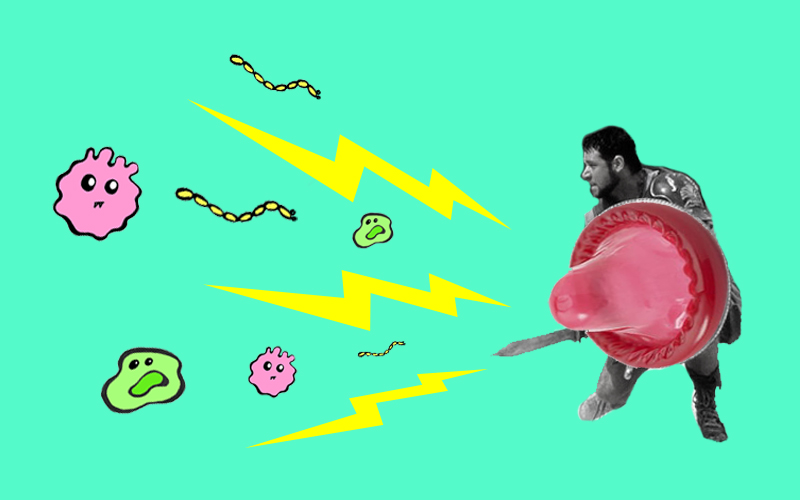We all think of STIs, as weird pictures in trains and buses = something that won’t happen to us. But STIs are more common that you think – they can be painful, they can be annoying and if ignored or left untreated, they can have serious consequences.
Do you know enough about STIs to avoid them, or if you get one, to deal with it swiftly and safely? Here’s a quick quiz.
STI stand for?
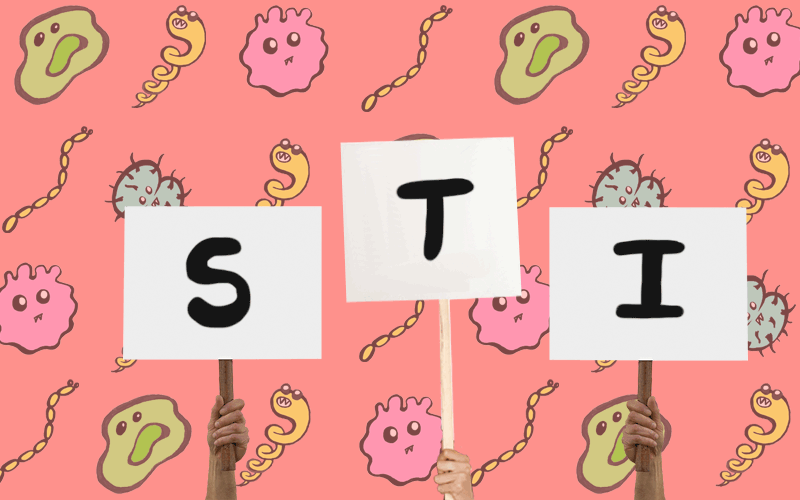
Correct!
3) STI stands for Sexually Transmitted Infection. They are usually passed on from person to person through unprotected sex or genital contact, and most can be easily treated. Another term sometimes used interchangeably is STD – Sexually Transmitted Disease – but it isn’t exactly the same. STD refers to a more serious stage – matlab jaldi treatment se infection disease nahi banega. All STDs are caused by STIs, but not every STI leads to an STD.
Incorrect!
3) STI stands for Sexually Transmitted Infection. They are usually passed on from person to person through unprotected sex or genital contact, and most can be easily treated. Another term sometimes used interchangeably is STD – Sexually Transmitted Disease – but it isn’t exactly the same. STD refers to a more serious stage – matlab jaldi treatment se infection disease nahi banega. All STDs are caused by STIs, but not every STI leads to an STD.
Are STIs a big deal?
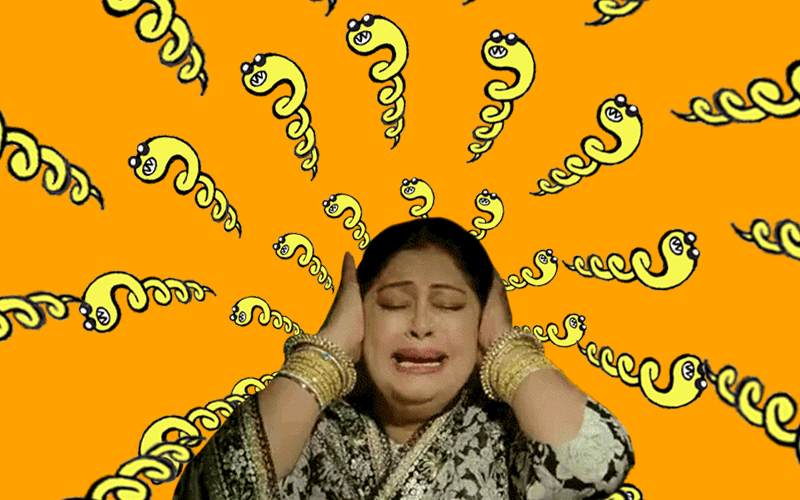
Correct!
1) Like with any other kind of infection, it depends – they can have a whole range of effects. Some STIs like bacterial vaginosis can be mild and go away without treatment. Some, like herpes, cannot be cured, but can be managed effectively with treatment. And a few can turn serious if left untreated. HPV can lead to cancer, and syphilis can lead to madness, severe organ damage, and death. It’s better to check with a doctor as soon as possible – hoping an STI will go away won’t help, but treating it might make it go away!
Incorrect!
1) Like with any other kind of infection, it depends – they can have a whole range of effects. Some STIs like bacterial vaginosis can be mild and go away without treatment. Some, like herpes, cannot be cured, but can be managed effectively with treatment. And a few can turn serious if left untreated. HPV can lead to cancer, and syphilis can lead to madness, severe organ damage, and death. It’s better to check with a doctor as soon as possible – hoping an STI will go away won’t help, but treating it might make it go away!
How will I know if I have an STI?
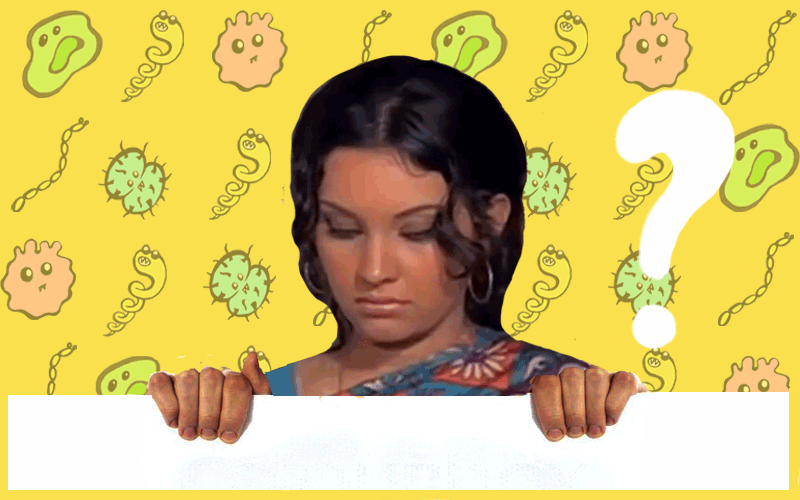
Correct!
1) In some people, STIs like HPV, gonorrhea, herpes and chlamydia can show no symptoms at all. Syphilis and HIV may not show symptoms for a long time, but they will show up eventually if left untreated. Only a medical test can tell you if have an STI for sure. Read: You, Me (Aur STD)
Incorrect!
1) In some people, STIs like HPV, gonorrhea, herpes and chlamydia can show no symptoms at all. Syphilis and HIV may not show symptoms for a long time, but they will show up eventually if left untreated. Only a medical test can tell you if have an STI for sure. Read: You, Me (Aur STD)
Which of the following is not an STI?
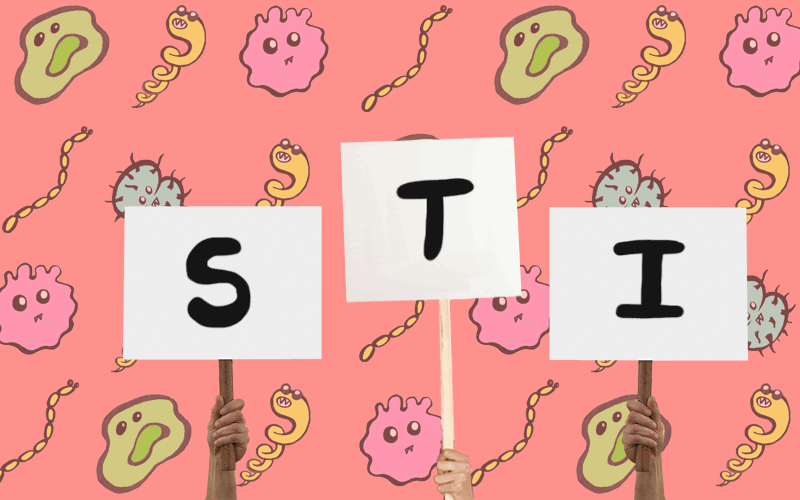
Correct!
1) Urinary Tract Infections affect more women than they do men, and are caused by bacteria commonly found in the digestive tract infecting the urethra and bladder. They are not sexually transmitted, but having sex can cause these bacteria to enter the urethra and cause an infection in women. It is common in women who have sex for the first time, and is also known as “honeymoon cystitis”.
Incorrect!
1) Urinary Tract Infections affect more women than they do men, and are caused by bacteria commonly found in the digestive tract infecting the urethra and bladder. They are not sexually transmitted, but having sex can cause these bacteria to enter the urethra and cause an infection in women. It is common in women who have sex for the first time, and is also known as “honeymoon cystitis”.
How do STIs spread?

Correct!
4) There are many ways you can get an STI, apart from penetrative sex and oral sex. Contact with the saliva of someone when they are in the highly infectious stage of a disease like syphilis – such as through kissing – can be a factor too. HPV can be transmitted through skin contact. Babies can contract STIs from their mothers during pregnancy, delivery or breastfeeding, if the mother does not realise she has an STI or does not receive adequate medical care during pregnancy.
One common misconception is that you can get an STI from a dirty toilet seat or using a public bathroom – this is untrue.
Read: Everything You Need To Know About Condoms But Feel Embarrassed To Ask
Incorrect!
4) There are many ways you can get an STI, apart from penetrative sex and oral sex. Contact with the saliva of someone when they are in the highly infectious stage of a disease like syphilis – such as through kissing – can be a factor too. HPV can be transmitted through skin contact. Babies can contract STIs from their mothers during pregnancy, delivery or breastfeeding, if the mother does not realise she has an STI or does not receive adequate medical care during pregnancy.
One common misconception is that you can get an STI from a dirty toilet seat or using a public bathroom – this is untrue.
Read: Everything You Need To Know About Condoms But Feel Embarrassed To Ask
What actually causes an STI?
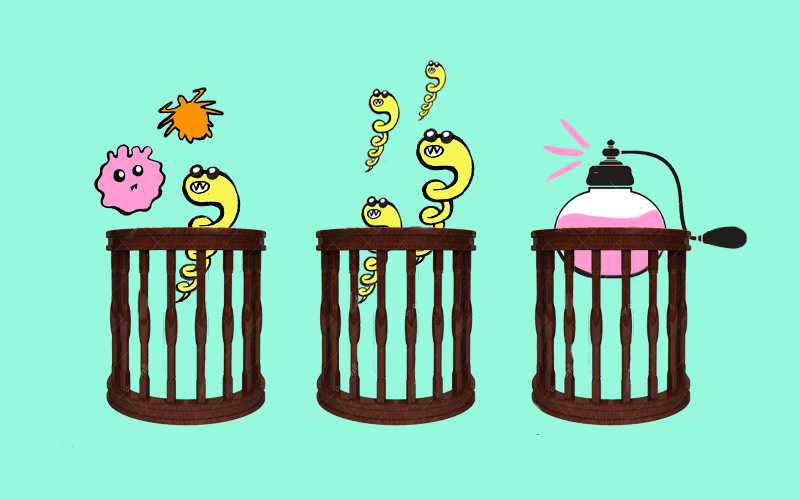
Correct!
4) STIs are caused by a range of factors – apart from bacteria and viruses, they can also be caused by protozoa, mites and lice. Viruses might cause infections like HIV, HPV or herpes, and bacteria can cause chlamydia and syphilis, and mites can cause diseases like scabies.
Incorrect!
4) STIs are caused by a range of factors – apart from bacteria and viruses, they can also be caused by protozoa, mites and lice. Viruses might cause infections like HIV, HPV or herpes, and bacteria can cause chlamydia and syphilis, and mites can cause diseases like scabies.
Can every STI be detected through tests?
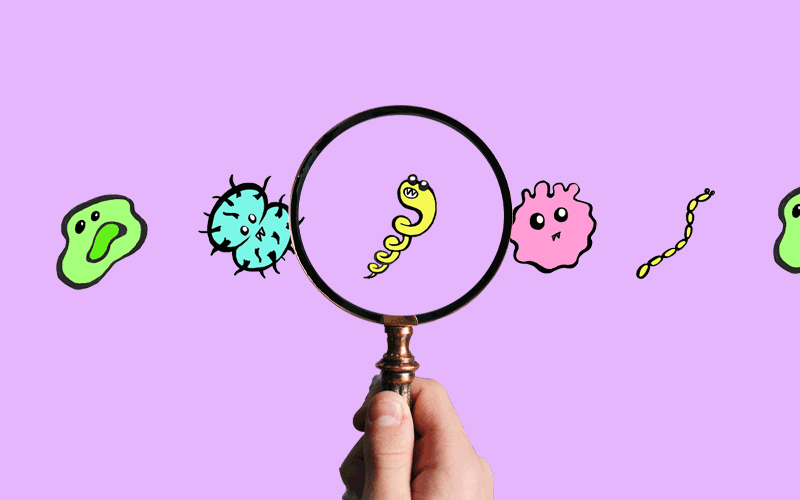
Correct!
3) Many STIs, like syphilis, chlamydia, gonorrhea and HIV, can be detected effectively through tests. However, HPV is an exception – even though it is extremely common. World over, there is currently no recommended test for HPV in men. For women, a test called a ‘pap smear’ might indicate abnormal cell changes in the cervix, which could indicate HPV.
Incorrect!
3) Many STIs, like syphilis, chlamydia, gonorrhea and HIV, can be detected effectively through tests. However, HPV is an exception – even though it is extremely common. World over, there is currently no recommended test for HPV in men. For women, a test called a ‘pap smear’ might indicate abnormal cell changes in the cervix, which could indicate HPV.
I had unprotected sex. How soon after should I get tested?
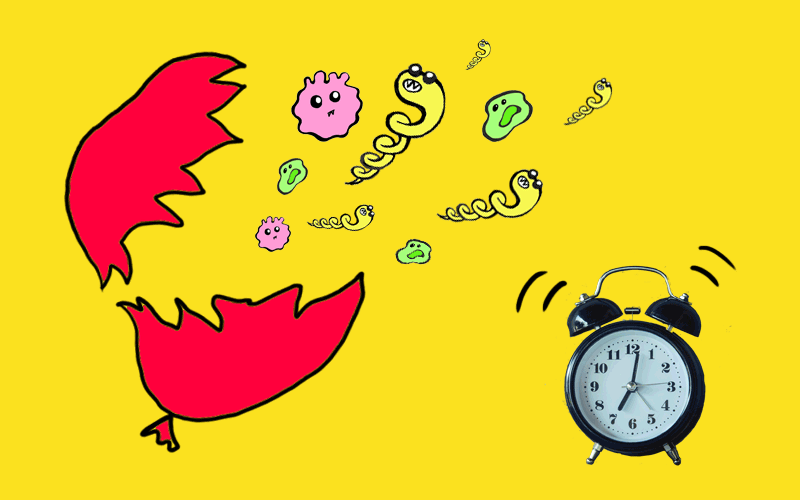
Correct!
4) For some STIs, symptoms can show up in a few days or a few weeks. Some may not show symptoms at all, but that doesn’t mean they don’t exist. If you think you are at risk, see a doctor, take a test!
Incorrect!
4) For some STIs, symptoms can show up in a few days or a few weeks. Some may not show symptoms at all, but that doesn’t mean they don’t exist. If you think you are at risk, see a doctor, take a test!
If you test positive, what should you do?
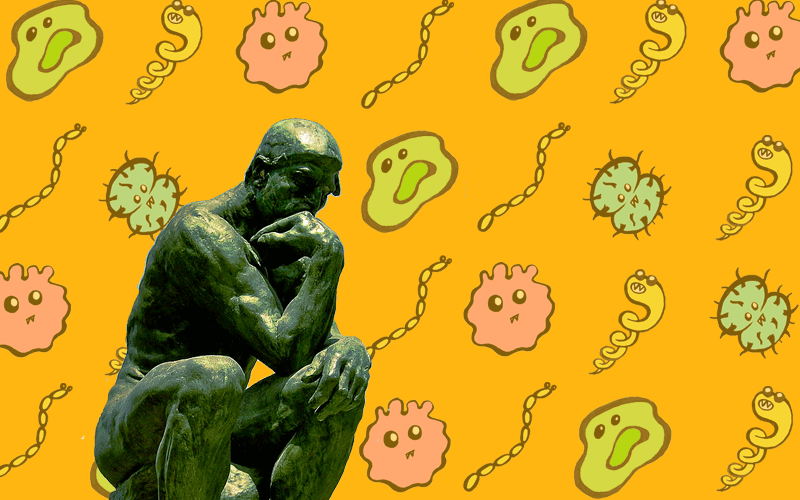
Correct!
4) Getting swift treatment for yourself is the best option. But you also have a responsibility towards other people too. Avoid intimate contact with your current bae and inform all recent baes so that they can seek treatment too.
Incorrect!
4) Getting swift treatment for yourself is the best option. But you also have a responsibility towards other people too. Avoid intimate contact with your current bae and inform all recent baes so that they can seek treatment too.
Should you talk about having an STI to someone who isn’t your doctor or former/current sexual partner?
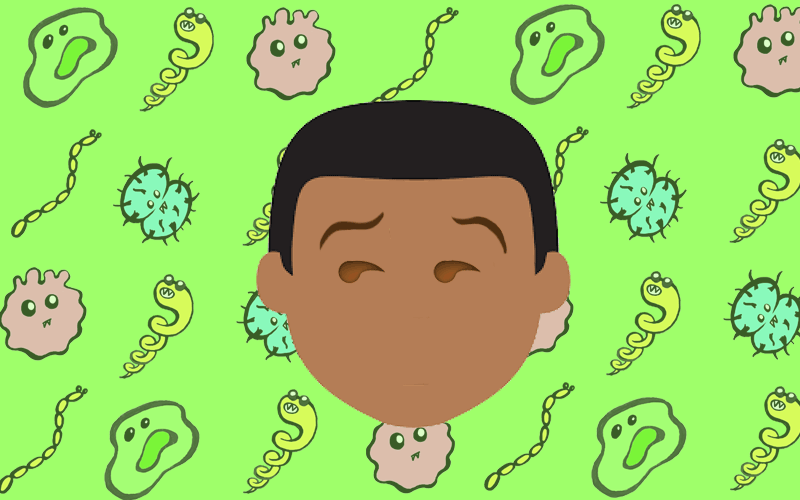
Correct!
1) Talking about STIs breaks the stigma surrounding them. Sharing on your terms, with people who might be sympathetic, might help you feel less lonely. But you should get to decide when and how you share this information – you don’t owe an explanation to anyone who isn’t a current or former partner.
Incorrect!
1) Talking about STIs breaks the stigma surrounding them. Sharing on your terms, with people who might be sympathetic, might help you feel less lonely. But you should get to decide when and how you share this information – you don’t owe an explanation to anyone who isn’t a current or former partner.
If you know someone who has an STI, you should
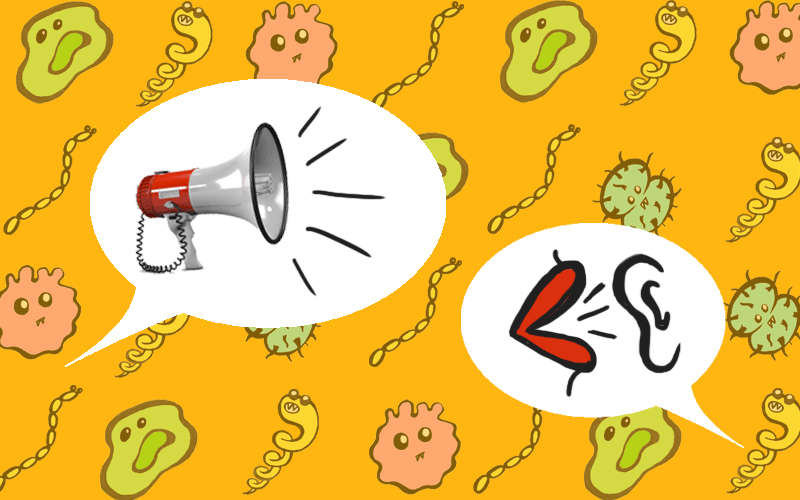
Correct!
3) Respect the other person’s wishes and their privacy, and remember that anyone can get an STI – even you. It is not a reflection on one’s socio-economic status, personal hygiene or personality/character to have an STI, and adding to the stigma around it might prevent crucial access to healthcare for those that need it.
Incorrect!
3) Respect the other person’s wishes and their privacy, and remember that anyone can get an STI – even you. It is not a reflection on one’s socio-economic status, personal hygiene or personality/character to have an STI, and adding to the stigma around it might prevent crucial access to healthcare for those that need it.
What can I do to avoid getting an STI?
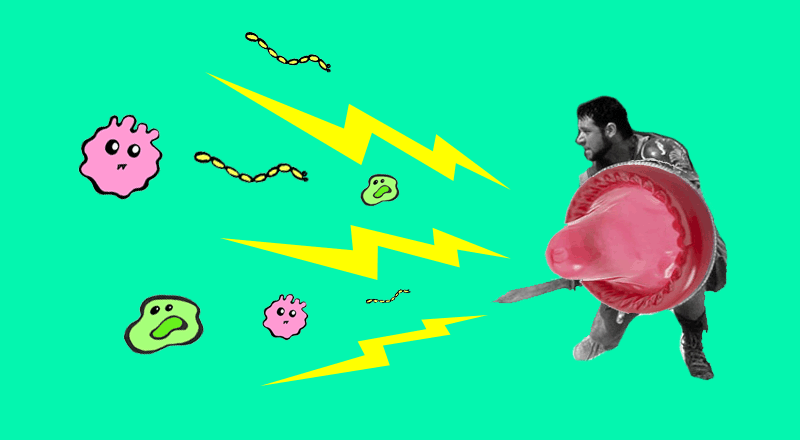
Correct!
3) No method is 100% foolproof (not even avoiding sex, as you can get an STI through contact with skin or saliva). But you can reduce the risks of getting STIs with responsible behaviour and having safe sex. And of course, by arming yourself with information about STIs!
Incorrect!
3) No method is 100% foolproof (not even avoiding sex, as you can get an STI through contact with skin or saliva). But you can reduce the risks of getting STIs with responsible behaviour and having safe sex. And of course, by arming yourself with information about STIs!
Can I have more than one STI at a time?

Correct!
2) Yes, people of any gender can have multiple STIs at a time. Having one makes it easier to contract another, because it leaves you with a weakened immune system – especially so if you have HIV. (Chlamydia and gonorrhea often co-exist, as do HIV and a range of other STIs.) Maintaining our general sexual health is important in exactly the same way as maintaining our basic bodily health.
Incorrect!
2) Yes, people of any gender can have multiple STIs at a time. Having one makes it easier to contract another, because it leaves you with a weakened immune system – especially so if you have HIV. (Chlamydia and gonorrhea often co-exist, as do HIV and a range of other STIs.) Maintaining our general sexual health is important in exactly the same way as maintaining our basic bodily health.
So is there definitely a cure for STIs?
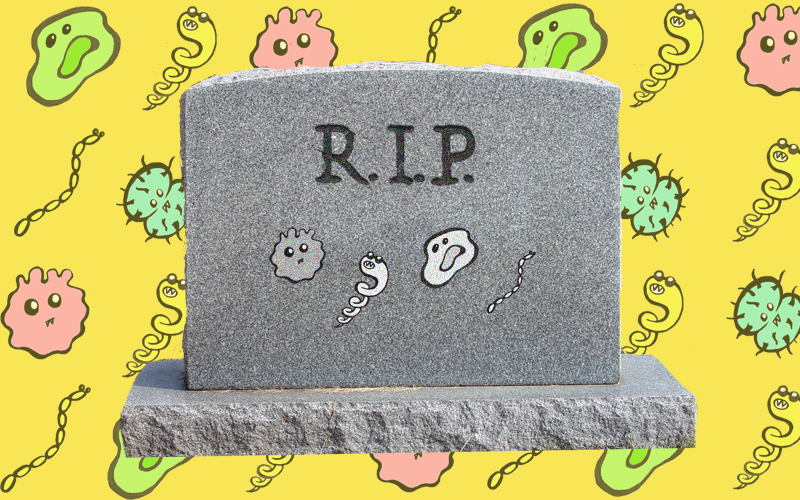
Correct!
4) Just like other bodily infections, there are type-type ka STIs. Some can be cured for good with a dose of antibiotics, while some may might repeatedly recur in one’s lifetime. While bacterial infections can be cured if targeted early, viral infections last a lifetime, but can be managed effectively – again, if caught early. So don’t wait to see happens – doctor ke paas jao!
Incorrect!
4) Just like other bodily infections, there are type-type ka STIs. Some can be cured for good with a dose of antibiotics, while some may might repeatedly recur in one’s lifetime. While bacterial infections can be cured if targeted early, viral infections last a lifetime, but can be managed effectively – again, if caught early. So don’t wait to see happens – doctor ke paas jao!
